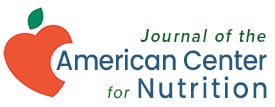
Introduction
Pregnancy is a unique period in the life of any woman. During this time, the mother-to-be needs to take extra care of her diet in order to ensure that she and her baby obtain all the necessary nutrients. Protein is an essential nutrient that pregnant women need to obtain from their diets. This article provides a comprehensive comparison between plant-based and whey proteins with regard to their suitability for pregnant women.
The aim of this article is to analyze the benefits and drawbacks of plant-based and whey proteins for pregnant women, so as to provide evidence-based advice on which type of protein would be most suitable for meeting their dietary requirements. Both types of proteins are popular sources used by many individuals, but research has not yet provided enough evidence on which type would be more beneficial for pregnant women.
To address this issue, this article presents a systematic analysis comparing both types of proteins with regard to their composition, bioavailability, safety during pregnancy, and digestibility. The results obtained from these comparisons will help determine which type of protein can be used as part of an optimal dietary plan for pregnant women
Nutritional Requirements In Pregnancy
Prenatal nutrition is an important component of a gestational diet. Nutrient requirements increase during pregnancy to ensure healthy fetal growth and development. Iron needs, in particular, are paramount as iron is essential for red blood cell production and helps to prevent anemia during pregnancy. Calcium requirements also increase during pregnancy due to the demands of the developing fetus. It is recommended that pregnant women consume 1000 mg of calcium daily to support both their own health and the health of their baby.
In addition to iron and calcium, pregnant women need an adequate intake of protein for normal fetal growth. Protein is necessary for tissue synthesis and plays a role in many metabolic functions throughout pregnancy. A balanced diet should include sources of animal-based proteins such as meat, fish, eggs, dairy products, and whey protein; as well as plant-based proteins including beans, legumes, nuts, quinoa, and seitan.
Given the increased nutritional demands on pregnant women’s bodies, it is important to understand the advantages and disadvantages of both animal-based and plant-based proteins so that pregnant women can make informed decisions about their dietary choices. Transitioning now into a comparison of these two protein sources.
Advantages of Plant-Based Protein for Pregnancy
In the context of pregnancy, protein is an indispensable macronutrient, and the surge in the popularity of plant-based proteins testifies to their nutritional prowess as an alternative to whey protein. For expectant mothers, plant-based proteins present an array of health benefits, effectively serving as a nutrient powerhouse. The key offerings of plant-based proteins during pregnancy include:
Boosted Nutrition: Plant-based proteins are replete with vitamins and minerals, serving as essential nutritional providers during pregnancy. These protein sources, rich in nutrients, render many of the benefits that come with animal proteins, but without the baggage of saturated fats that could potentially lead to health issues.
Eco-Friendly and Sustainably Sourced: Hailing from natural plants like legumes, nuts, seeds, and grains, plant-based proteins are sustainable and pose less harm to the environment. This makes them a prudent choice for expectant mothers aiming to minimize their environmental footprint while simultaneously optimizing their nutritional intake.
Versatile and Easy-to-Integrate: Plant-based proteins can seamlessly fit into various meals and snacks throughout the day, thereby ensuring that the required protein levels for optimal fetal development are met. Incorporating a mix of both plant and animal protein sources into the diet can offer a more comprehensive range of vitamins, minerals, antioxidants, and other nutrients. By prudently assessing their dietary needs and acquiring an understanding of plant-based nutrition, expectant mothers can ensure a nutrient-rich diet that supports a healthy pregnancy.
Are There Any Disadvantages of Plant-Based Proteins for Pregnant Women
While plant-based proteins offer various benefits for expectant mothers, there are certain challenges tied to their consumption during pregnancy. Their relatively low biological value and incomplete amino acid profile may pose issues. For instance, soy-based proteins, a common choice for vegans, frequently lack methionine and cysteine, essential amino acids that assist muscle development. Furthermore, the high sugar content and reliance on artificial flavors to enhance palatability in many plant-based protein sources may trigger digestive discomfort, bloating, and fatigue when consumed regularly.
Compared to whey protein, plant-based proteins are not as readily absorbed, demanding more energy for digestion. In addition, availability can be an issue for some types of plant proteins such as soy, leading to costly shipping if not locally accessible. Therefore, when deciding on protein options during pregnancy, these potential downsides of plant-based proteins must be considered.
Is Whey Protein Safe During Pregnancy
Whey protein offers a plethora of benefits to pregnant women, setting a high bar that few other protein sources can match. In the realm of digestion and absorption, whey protein stands unparalleled. Its small molecular size allows for swift breakdown and absorption, facilitating muscle growth and repair, and providing energy essential for labor and delivery. Furthermore, whey protein bolsters the immune system owing to its high bioavailability and rapid absorption, assisting pregnant women to maintain good health.
Whey protein also fills the gap left by plant-based proteins, offering essential amino acids necessary for processes such as fat burning, hormone production, and brain function, all crucial for the development of both the mother and baby. Consequently, when pitted against plant-based proteins, whey protein offers superior nutritional value and health benefits for pregnant women.
However, despite its benefits, whey protein does have potential downsides which need to be acknowledged when considering protein sources during pregnancy.
Potential Drawbacks of Whey Protein in Pregnancy
There are several potential negatives associated with whey protein consumption during pregnancy. As a dairy product, it may not be suitable for expectant mothers with lactose intolerance or dairy sensitivity due to the risk of bloating and other digestive issues. Moreover, some whey isolates can be high in sugar, posing a challenge for those trying to regulate their sugar intake during pregnancy. Artificial sweeteners in some whey proteins can also be a concern as pregnant women tend to be more sensitive to these substances. Careful selection of a whey protein supplement during pregnancy is therefore crucial to avoid brands with high sugar content or artificial sweeteners.
In conclusion, while whey protein offers convenience and ready availability, potential drawbacks need to be factored in before choosing this or plant-based protein during pregnancy. Consulting with a healthcare provider before settling on either plant-based or whey-based protein sources during pregnancy is recommended.
Suggested Intake For Both Sources Of Protein During Pregnancy
Protein intake during pregnancy is a crucial element of proper nutrition and can be obtained from both plant-based and whey sources. The recommended daily allowance (RDA) for pregnant women is 71 grams per day, which is slightly higher than the average dietary requirement for adults. Plant-based proteins such as legumes, nuts, seeds, whole grains, and soy are excellent sources of high-quality protein that can contribute to meeting the RDA. In addition to supplying essential amino acids for muscle growth and development, plant-based proteins are rich in vitamins and minerals that are important for fetal health. Whey protein is another source of quality protein during pregnancy. Whey protein concentrate or isolate powders can provide an easy way to increase total daily protein intake without adding extra calories or fat. However, it is important to ensure that whey products are free from added sugars or other artificial ingredients.
It is also important to consider individual nutrient needs when determining the best option for you. For example, if a pregnant woman has lactose intolerance or follows a vegan diet she may need to opt for plant-based proteins over whey proteins. Similarly, if there are allergies or other dietary restrictions related to certain foods then those should be taken into account when selecting the most appropriate source of protein during pregnancy. Ultimately, consulting with a healthcare provider can help identify the best source of protein based on individual nutritional needs and lifestyle factors.
Determining The Best Option For You
The journey to determine the best protein source for a healthy pregnancy can be likened to searching for a needle in a haystack. With numerous sources of information available and so many factors to consider, it can be an overwhelming process. But with careful consideration of the facts and comparison between plant-based and whey protein sources, pregnant women can find the right choice for their needs.
To help you on your journey, here is a 3 item bullet point list:
- Compare sources – Understand the nutritional content of each type of protein, as well as any potential risks associated with its consumption during pregnancy.
- Consider your needs – Take into account your individual health needs and lifestyle habits when making a decision.
- Speak to your doctor – Ask your healthcare provider for professional advice before making a final decision.
It is important to understand that both plant-based and whey proteins offer benefits during pregnancy. Plant-based proteins generally contain higher levels of fiber, vitamins, minerals and phytonutrients than whey proteins provide. Additionally, plant-based proteins may contain fewer allergens or other compounds that could potentially cause harm in pregnant women. Whey proteins are typically high in essential amino acids, which are needed for fetal development throughout all stages of pregnancy. Ultimately deciding which source is best will depend on individual needs and preferences, as there is no one size fits all solution when it comes to nutrition during this special time in life.
It is essential to note that while both plant-based and whey proteins are beneficial during pregnancy, they should not be consumed at the expense of other nutrient dense foods such as fruits and vegetables which provide much needed vitamins and minerals necessary for optimal health during this period of rapid growth and development. As such, speaking with your doctor or health care provider is recommended before making any decisions about which protein source would be most appropriate for you personally.
Conclusion
Protein is an important nutrient for pregnant women, as it helps to support the growth of the baby during pregnancy. In evaluating plant-based and whey protein sources, both provide advantages and disadvantages that should be taken into consideration. It is important to note that pregnant women need a minimum of 71 grams of protein per day in order to meet the nutritional needs of their growing baby.
The decision between using a plant-based or whey protein source during pregnancy should be based on individual needs and preferences. For those looking for an alternative to animal sources, plant-based proteins can provide essential nutrients with some additional benefits such as fiber, antioxidants, minerals, and vitamins. On the other hand, whey protein has been found to have a higher digestibility rate than many plant-based proteins, making it a great choice for those who have difficulty digesting certain foods.

